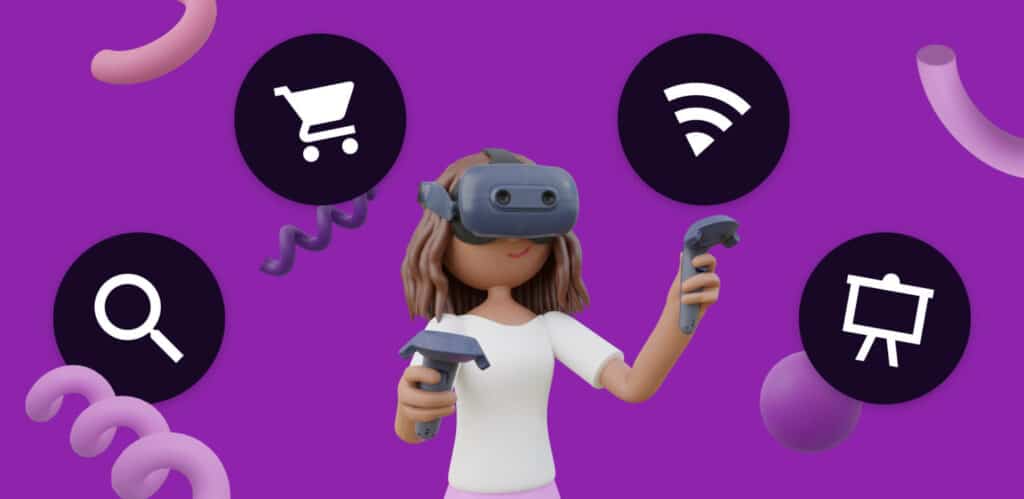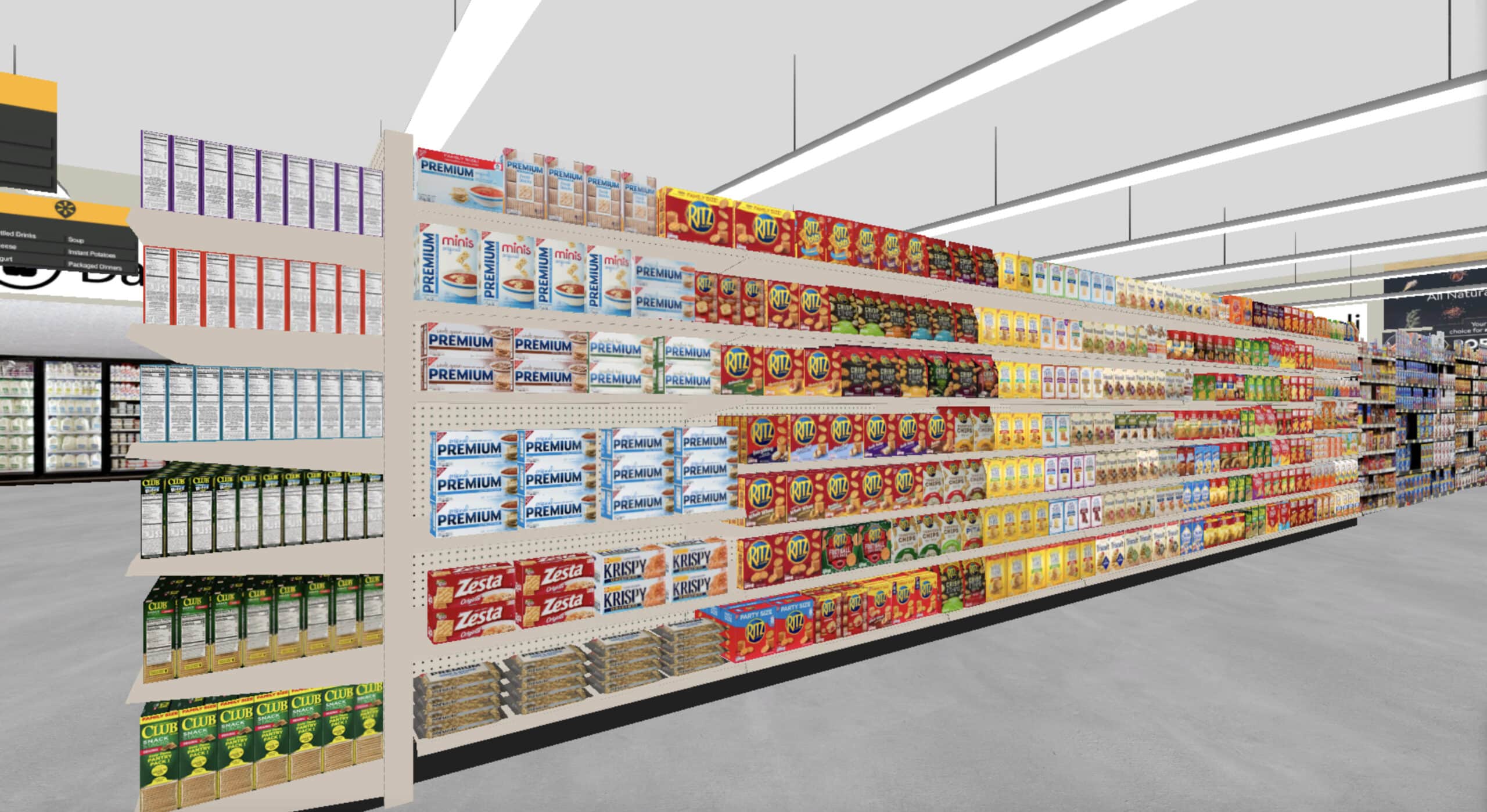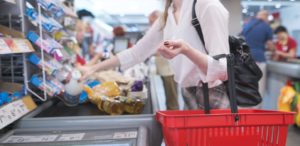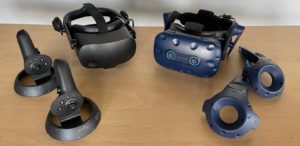4 ways to use VR for retail innovation in 2021

CPG companies and retailers can now take advantage of virtual reality technology to more efficiently build retail labs, merchandise stores, and conduct consumer research.
The lasting effects of the 2020 pandemic have dramatically changed technology use, consumer behaviors, and brick and mortar store operations. Executives are working from home and physical stores are constantly evolving their safety measures and assortments to meet shopper needs.
These current challenges place an increasing importance on innovation. Many of today's top CPG brands and retailers already utilized VR in retail processes before the pandemic. So for those without a virtual reality component incorporated into their retail strategy, now is the time.
Virtual reality requires a lower investment of resources and provides more efficient data analytics than physical innovation labs. As a short-term and long-term investment, the virtual retail lab offers an incredible solution for in-store planning and testing.
Read on to learn about four ways VR can be used to improve retail innovation in 2021, presented by the retail industry experts at ReadySet.
1. Shopper Research
Virtual reality software provides insights teams with the autonomy to instantly evaluate their in-store retail solutions. Easily recreate the store shopping experience in an immersive virtual store environment that allows for testing store planning and merchandising ideas through shopper studies.
Shopper research in virtual reality utilizes headset and sensor technology to accurately track consumer eye and body movements. This provides researchers with robust analytics and eye-tracking heat maps to quickly understand the end-to-end customer journey. Collected data is used to uncover unique consumer insights that identify and confirm shopper-approved retail solutions.
VR research is also much more adaptable than traditional in-person studies, as consumer data is instantly gathered electronically with each participant. This allows for prompts and objectives to be adjusted in real-time, more accurately accounting for unexpected behavioral outcomes.
2. Merchandising and Planogramming
VR store planning can effortlessly adapt to all merchandising project needs for any store by providing 100% true-to-scale grocery, club, convenience, drug, front end, and showcase virtual environments in one place.
Virtual reality also utilizes 3D models for planogramming, allowing access to an entire retail inventory from anywhere. Readily create, find, edit, and update products, fixtures, and signage with the click of a button.
Quickly create 3D planograms in virtual stores by building shelves, adding products, and securing signage. Create optimal shelf layouts without ever having to hassle with inventory or space, saving time and money.
There is also an option to automatically generate planograms using ReadySet’s JDA (Blue Yonder) integration, as opposed to building aisles in the virtual environment. Simply upload a .psa file in order to establish a planogram that can then be further viewed, edited, and evaluated in VR.

3. Online Market Research
The pandemic has limited the ability of retailers and product manufacturers to conduct research. Social distancing measures and work from home practices have made it nearly impossible to conduct in-person shopper studies.
The temporary solution to this problem has been to conduct online research. Unfortunately, data from online surveys and static shelf image exercises do not capture live results. This often leads to inaccurate or subpar insights.
Virtual reality provides an alternative method that utilizes the realism of VR shopping and the convenience of online shopper studies. Online virtual research involves remote respondents that navigate a store and shop shelves as they normally would. Online virtual research is more accessible than traditional VR research because participants do not require a headset. The remote respondents simply need a standard computer with a webcam and mouse.
Insights gathered from online virtual studies provide higher quality data compared to traditional online surveys. This is because insights are gathered in real-time through tracking via mouse and webcam. Online virtual research allows organizations to carry out affordable, large-scale online market research with advanced customer experiences.
4. Sales Presentations
It is easy to collaborate and share in-store ideations internally and with external partners in virtual reality. Take screenshots, send 360 photos and provide virtual tours in presenter mode. The realistic virtual store provides an engaging experience with compelling visuals that offer a superior presentation of retail solutions to stakeholders. The shopper studies in VR research also auto generate easy-to-analyze dashboard reports that provide compelling data-driven evidence in support of retail initiatives.
Subscribe to our newsletter
Get our blogs and the latest retail news delivered to your inbox monthly.
Recent Posts
5 Front End Challenges & How Retail is Reinventing the Future of Brick and Mortar
New technologies and consumer behaviors have made retailers realize they need to quickly reinvent the in-store experience at checkout. Consumer behaviors rapidly changed during the pandemic and impacted the retail front end as it is considered a high contact area. Fear to touch checkout merchandise and machines has led to poor front end performance that…
HTC Vive Pro Eye vs. HP Reverb G2 Omnicept: Which is Best for Market Research?
VR has found its way into accelerating the retail innovation process through better market research. Selecting the right virtual reality hardware is part of successfully adopting new technology. Virtual reality is no longer just a form of entertainment. It is now being used in business for better training, planning, testing, and collaboration. The retail industry…
5 Holiday Shopping Predictions & Recommendations for 2021
The pandemic greatly influenced celebrations and holiday shopping in 2020, but with normalcy on the horizon there are different 2021 holiday predictions that retailers should consider. Last year, the Covid-19 pandemic led to a decrease in holiday social gatherings. Although there were less family holiday celebrations and religious services, traditions such as decorating, gifts and…




[…] games or science fiction. But how is VR used in business? Gain a better understanding of VR and AR in retail scenarios and how it can be utilized to elevate your brand. Identify whether VR is an option for your own […]
[…] area that has taken advantage of virtual reality to devise a faster way to innovate. There are many ways to use VR for retail innovation. One of the most popular is to conduct eye tracking consumer research that uncovers accurate […]